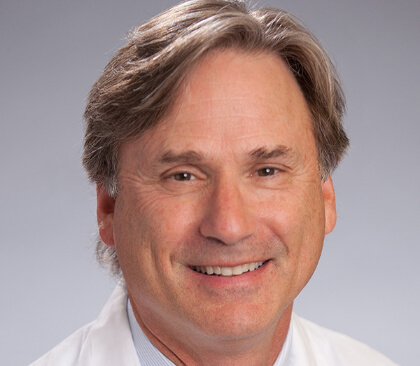When Justin first noticed the twitching in his bicep in May 2019, he didn’t think much about it. He chalked it up to lack of sleep or too much stress during his last year of graduate school. His neurologists at the time weren’t concerned either. That November, they diagnosed Justin with benign fasciculation syndrome—involuntary muscle twitching.
Even though the twitching spread to his legs, chest, back and hands over the next nine months, Justin continued to run and go to the gym regularly. When the pandemic hit in 2020, though, he noticed it got harder to exercise at the same intensity. Another neurology appointment, an MRI and a test called electromyography (a nerve stimulation test that measures electrical activity in muscles) finally revealed a diagnosis.
At 39, Justin learned he had amyotrophic lateral sclerosis (ALS), a condition also known as Lou Gehrig’s disease.
“I remember the day that I was initially diagnosed, standing in line waiting to check out, just trying to wrap my brain around the words that I had just heard,” Justin says. “Where did this come from, and what are we going to do? How are we going to deal with this?”
Watch video of Justin's story on living with ALS
Expertise in Treating ALS
ALS is a rare neurodegenerative disease that gets worse over time. It impacts the nerve cells in the brain and spinal cord, specifically the parts of these cells that signal and control your muscles. As the condition progresses, your muscles weaken, and you lose your voluntary muscle control. Eventually, you can lose the ability to eat, move, speak or breathe on your own.
After his diagnosis, Justin came to the ALS Center at Emory Healthcare for a second opinion and treatment. Emory’s team of experts works closely with the ALS Association of Georgia to deliver sophisticated services. Emory ALS Center is one of the largest, most comprehensive ALS clinical centers nationwide. We currently provide care to roughly 550 patients. In the past 20 years, the team has treated more than 3,000 patients with ALS.
There’s no cure for ALS, so at Emory we provide Riluzole, the only medication approved by the Food & Drug Administration to slow disease progression. We also prescribe other medications to relieve muscle cramps, constipation, fatigue, pain and excessive salivation and phlegm. Additionally, we focus on improving quality of life through:
- Neurology care
- Nutrition
- Occupational therapy
- Physical therapy
- Respiratory therapy
- Speech therapy
 “Every patient has their own version of this disease. As a specialist, we might see a thousand different presentations, and patients might progress in a thousand different ways. But eventually, it all ends up in the same place,” says Jonathan Glass, MD, director of Emory’s ALS Center. “This is a complicated disease. Instead of people having to go from office to office with difficulties in transportation and movement, as well as additional cost, we bring people to Emory with all our practitioners.”
“Every patient has their own version of this disease. As a specialist, we might see a thousand different presentations, and patients might progress in a thousand different ways. But eventually, it all ends up in the same place,” says Jonathan Glass, MD, director of Emory’s ALS Center. “This is a complicated disease. Instead of people having to go from office to office with difficulties in transportation and movement, as well as additional cost, we bring people to Emory with all our practitioners.”
The Emory team uses our collective experience to deliver forward-thinking, family-centered treatments.


 Overall, Justin has experienced a normal ALS progression. His twitching muscles eventually led to weakness in his arm and leg muscles. Today, he has little ability to move and spends much of his time in a wheelchair.
Overall, Justin has experienced a normal ALS progression. His twitching muscles eventually led to weakness in his arm and leg muscles. Today, he has little ability to move and spends much of his time in a wheelchair. In June, Justin and his family also partnered with Emory Healthcare and the Atlanta Braves to celebrate ALS Awareness Day. They took to the field before the game to increase familiarity with this complex, little-understood disease. Justin’s son Gage threw the first pitch. As a lifelong Braves fan, Justin says he’s thrilled he and his son have that memory together. But he is also grateful for the opportunity to spotlight ALS in such a public way. Doing so presents a chance to encourage other patients with ALS to live life to the fullest.
In June, Justin and his family also partnered with Emory Healthcare and the Atlanta Braves to celebrate ALS Awareness Day. They took to the field before the game to increase familiarity with this complex, little-understood disease. Justin’s son Gage threw the first pitch. As a lifelong Braves fan, Justin says he’s thrilled he and his son have that memory together. But he is also grateful for the opportunity to spotlight ALS in such a public way. Doing so presents a chance to encourage other patients with ALS to live life to the fullest.

